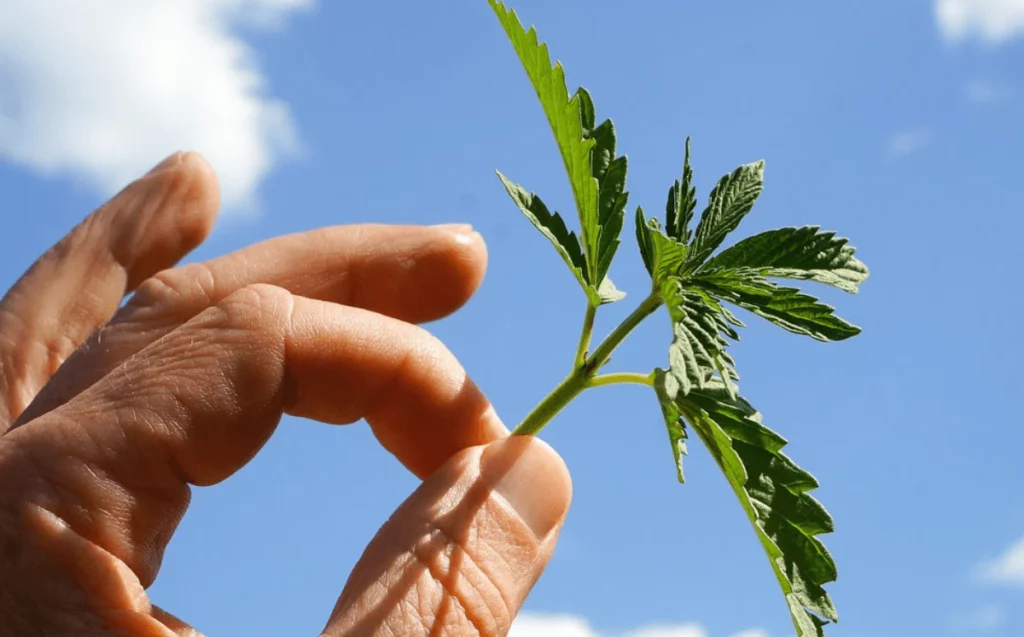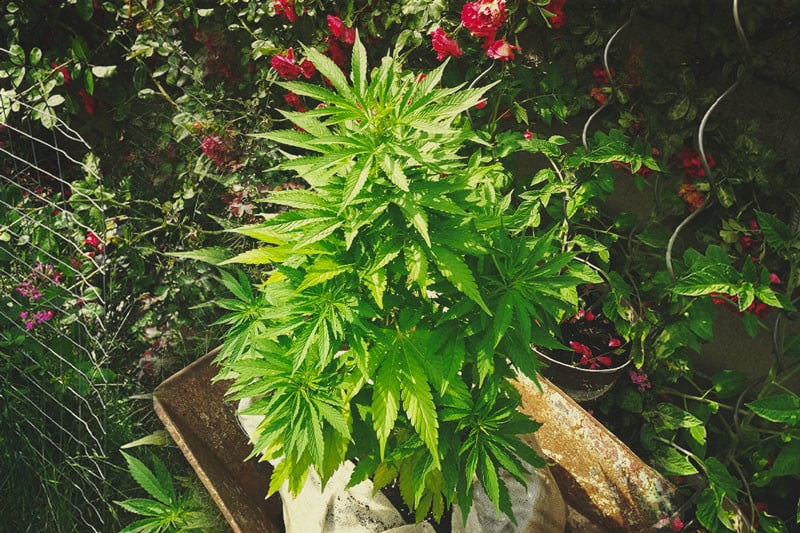As the popularity of cannabis continues to rise, so does the interest in organic cultivation methods. Organic cannabis offers a cleaner, chemical-free product, which is appealing to both recreational and medicinal users. By avoiding synthetic fertilizers and pesticides, organic growers can produce a high-quality, natural product while also being kind to the environment. This post will explore some essential tips and techniques for growing organic cannabis successfully, focusing on soil preparation, natural fertilizers, pest management, and more.
Why Grow Organic Cannabis?
Organic cultivation of cannabis is not only about producing a product that is free from synthetic additives but also about fostering a sustainable ecosystem. Growing organically means using natural processes to enrich the soil, encourage beneficial microorganisms, and ensure that the plant receives the nutrients it needs throughout its growth cycle.
By choosing organic methods, growers can avoid chemical residues in their final product, resulting in cannabis that is often richer in flavor and more appealing to those seeking a natural alternative. Additionally, organic cultivation helps maintain the health of the soil, making it a sustainable option for long-term growing.

Preparing the Soil: Building a Strong Foundation
One of the most critical aspects of growing organic cannabis is starting with high-quality soil. The right soil serves as a foundation that provides all the necessary nutrients for cannabis plants without needing chemical supplements.
Selecting Organic Soil
When selecting soil for your organic cannabis garden, look for options that are labeled as organic and rich in organic matter. A good organic potting mix might contain ingredients like compost, peat moss, worm castings, and coconut coir. These elements help create a soil that is nutrient-dense and well-draining, which is essential for healthy root development.
Amending the Soil
Even if you start with a high-quality soil, adding organic amendments can provide additional nutrients to support cannabis growth throughout its lifecycle. Common amendments include bone meal for phosphorus, kelp meal for potassium, and worm castings for overall soil fertility. Mixing these into the soil before planting can create a nutrient-rich environment that supports the plant’s needs from seedling to harvest.
Using Organic Fertilizers for Growth
Once your soil is ready, it’s essential to maintain nutrient levels as your cannabis plants grow. Organic fertilizers release nutrients slowly, providing a steady supply without the risk of overfeeding.
Natural Fertilizer Options
Some of the best organic fertilizers for cannabis include fish emulsion, blood meal, and alfalfa meal. Fish emulsion is high in nitrogen, making it ideal for the vegetative stage, while bone meal is rich in phosphorus, supporting healthy bud development during the flowering stage. These fertilizers are easy to use—simply mix them into your watering schedule or add directly to the soil as needed.
Compost Tea for Extra Nutrients
A popular technique among organic growers is the use of compost tea. This involves steeping compost in water to create a nutrient-rich solution that can be applied as a foliar spray or soil drench. Compost tea not only provides essential nutrients but also introduces beneficial microbes that enhance soil health, helping plants absorb nutrients more efficiently.
Managing Water and pH Naturally
Water is another crucial element in organic cannabis cultivation. Since organic methods rely heavily on soil health and microbial activity, it’s essential to use water that won’t harm these beneficial organisms.
Choosing the Right Water
Using rainwater or filtered water is ideal for organic cannabis plants, as tap water can contain chlorine and other chemicals that may disrupt soil life. If you must use tap water, let it sit out overnight to allow chlorine to evaporate before applying it to your plants. This small step can make a big difference in maintaining a healthy soil ecosystem.
Monitoring pH Levels
Even in organic growing, pH levels are crucial for nutrient absorption. The ideal pH range for cannabis is typically between 6.0 and 7.0. Organic growers often use natural pH adjusters, such as vinegar to lower pH or baking soda to raise it. Keeping pH levels in the optimal range ensures that plants can access the nutrients they need for robust growth.
Organic Pest Management: Protecting Your Plants
One of the challenges of organic growing is managing pests without using chemical pesticides. However, several effective natural methods can help keep your plants pest-free.
Using Beneficial Insects
Beneficial insects like ladybugs and predatory mites can be a great addition to your organic garden. These insects naturally prey on pests like aphids, spider mites, and whiteflies, helping to keep pest populations under control. Releasing beneficial insects into your garden can be a proactive way to maintain plant health.
Natural Pesticides
For more stubborn pests, organic growers often use neem oil or insecticidal soap. Neem oil can be sprayed on leaves to deter common pests without harming beneficial insects. Always use these treatments sparingly and in the evening to avoid leaf burn from the sun.
Harvesting and Curing: Bringing Out the Best in Your Organic Cannabis
After months of care and attention, the time will come to harvest your cannabis plants. Proper harvesting and curing are essential for bringing out the full flavor and potency of organically grown cannabis.
Knowing When to Harvest
The best time to harvest your cannabis is when the trichomes (tiny resin glands on the buds) change from clear to milky white, with some turning amber. This indicates that the plant has reached its peak potency. Harvesting too early can result in a less potent product, while waiting too long can cause a more sedative effect.
Curing for Better Quality
Once harvested, cannabis should be dried in a cool, dark place for 7-10 days. After drying, place the buds in glass jars and open them daily for the first week to release moisture. This process, known as curing, helps to preserve terpenes and improve the flavor and aroma of your final product. Curing can take up to a month, but the results—a smoother smoke and richer taste—are well worth the patience.
The Benefits of Growing Organic Cannabis
Organic cannabis cultivation not only yields a cleaner product but also contributes to the long-term sustainability of your garden. By building healthy soil, using natural fertilizers, and practicing mindful pest management, you can create a thriving environment for your plants that continues to improve year after year.
Enhanced Terpene Profiles
One of the significant advantages of growing organically is the enhanced terpene profiles that result from natural cultivation methods. Terpenes contribute to the unique flavor and aroma of each strain, and organically grown cannabis often has a richer, more complex terpene profile compared to its conventionally grown counterparts.
Environmentally Friendly Practices
Organic cultivation methods are also kinder to the environment. By avoiding synthetic fertilizers and pesticides, organic growers can prevent harmful chemicals from leaching into groundwater or disrupting local ecosystems. This sustainable approach not only benefits the grower but also contributes to a healthier planet.
Conclusion
Growing organic cannabis can be a rewarding experience, both in terms of the quality of the final product and the satisfaction of cultivating it naturally. While it may require a bit more effort and attention to detail, the results—flavorful, chemical-free buds—are worth every bit of time and care. By following these tips and techniques, you can create an organic cannabis garden that thrives, yielding high-quality harvests season after season.
Whether you’re a first-time grower or looking to transition from conventional methods, organic cannabis cultivation offers a fulfilling way to connect with the growing process and produce a healthier, more natural product. Happy growing, and may your garden flourish!

